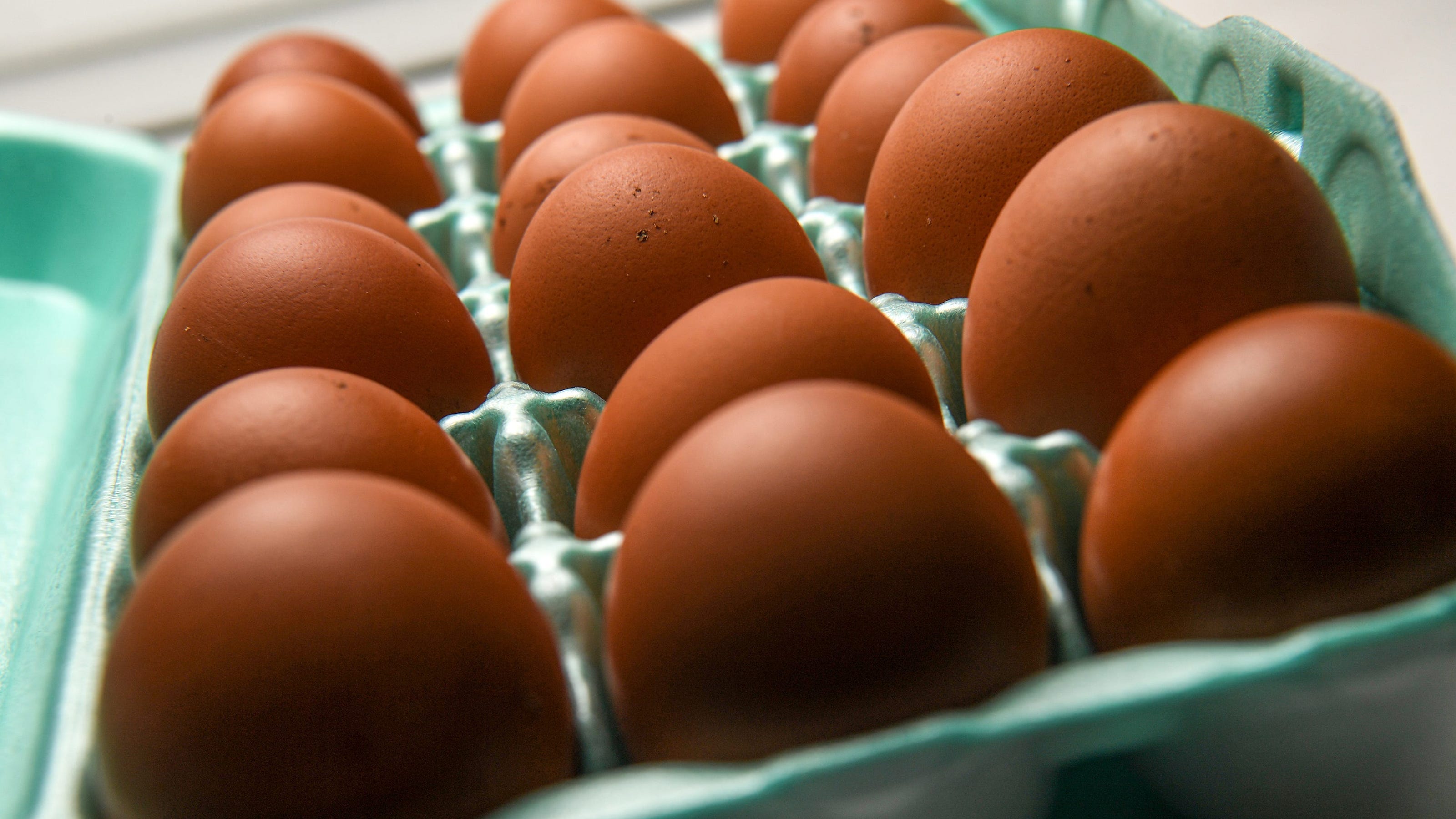“Milo’s Poultry Farms is in Bonduel, Wisconsin, about 29 miles north of Green Bay.”
Saved you a click if you’re worried it’s near you.
According to the FDA, all carton sizes with expiration dates of Oct. 12 and earlier for following brand eggs are being recalled:
Milo’s Poultry Farms
M&E Family Farms
Tony’s Fresh Market
The alert also includes duck eggs brand Happy Quackers Farm sold in a 12-count carton, packaged by Milo’s Poultry Farms.
The investigation said these states had reported cases linked to the outbreak:
- California
- Colorado
- Iowa
- Illinois
- Michigan
- Minnesota
- Utah
- Virginia
- Wisconsin
Good to know. I was assuming northeast and this is much closer
Saintly.
Why just dont take better care of chickens in the first place?
(We all know there is enough profit to allow that & much more.)Bcs your laws says you don’t have to?
I remember how much political pressure there was on EU to lower our standards & allow poultry imports from USA on the cheap.
This has nothing to do with how chickens are taken care of. Salmonella naturally occurs in chickens and is totally harmless to them. In the US, we wash our eggs, which eliminates the salmonella but requires the eggs be refrigerated for storage. In most of the EU, eggs are unwashed, but the chickens are vaccinated against salmonella. Washed eggs can be refrigerated and stored for almost 2 months, where unwashed eggs last about 3 weeks.
Plenty salmonella outbreaks related to eggs still happen in the EU also.
I was curious, it seems we have a prevalence goal of about 2% (which is achieved/maintained, but a bit less than two decades ago something changed & caused a spike). US follows the cases reported via health organisations and the human results are about the same.
From 1 January 2008, all Member States with Salmonella prevalence above 10% will have to vaccinate their laying hens against Salmonella, in order to reduce the spread of the disease and the contamination of eggs. The vaccinations used must be authorised at EU level, and must be distinguishable from the field bacteria during sampling and testing. National authorities may exempt a holding from this vaccination requirement provided satisfactory preventive measures are being applied or there has been no incidence of Salmonella on the holding over the previous 12 months.
what about unwashed refrigerated eggs?
I def use them after 3 weeks (prob 5 if bought fresh), but always do the floaty & smelly tests (bcs I’m picky, not bcs of Ella salmon).
You know over here in Europe we don’t have to refrigerate egg or wash slaughtered chicken in a chlorine bath. We use something called a vaccine that prevents salmonella in the first place
Bro, there are hundreds of egg-related salmonella outbreaks across Europe every year.
I agree, mostly, but…
-
We wash our eggs in Canada and the USA (and a few other places) for more than just salmonella. It’s mostly salmonella, but there are other bacterium and stuff that can be on the outside of the eggs after they roll around in chicken shit (hyperbolicly). The washing removes the protective bloom so we then have to refrigerate our eggs. In countries that don’t do this, you should still wash your eggs right before using them and your hands after handling them.
-
The extent of this particular recall indicates something happened in the packaging process that wouldn’t necessarily have been solved by vaccines. It seems like something got contaminated and then contaminated the eggs post washing. Vaccines would probably reduce the risk of having any contaminated surfaces (since there would be less chance of salmonella being brought in) but we don’t know the source of the contamination at this point.
-
You still get salmonella outbreaks and illness (from eggs and meat) in Europe. The vaccine isn’t 100% effective, there can be new strains, mishandled products, or even specific farms that get an infection and introduce it into the system. So just keep in mind that while the strategies are different both have been effective in reducing the amount of downstream illness (though it is slightly better in Europe, I believe).
-
Yeah but if they did that, farmers would have to spend an extra couple of cents of their government subsidies per chicken and then the health insurance industry would make a load less money from exploiting people hospitalised with entirely avoidable illnesses…!
Genuinely wouldn’t be surprised if health insurance lobbying is part of the reason it’s this way
I get the cynicism, but the reality is that the system of washing eggs in the US was incredibly effective at reducing salmonella-related illness so we stuck with it. The data demonstrates both systems are about equally effective at preventing salmonella exposure. Similar salmonella outbreaks still happen in the EU’s system, too




